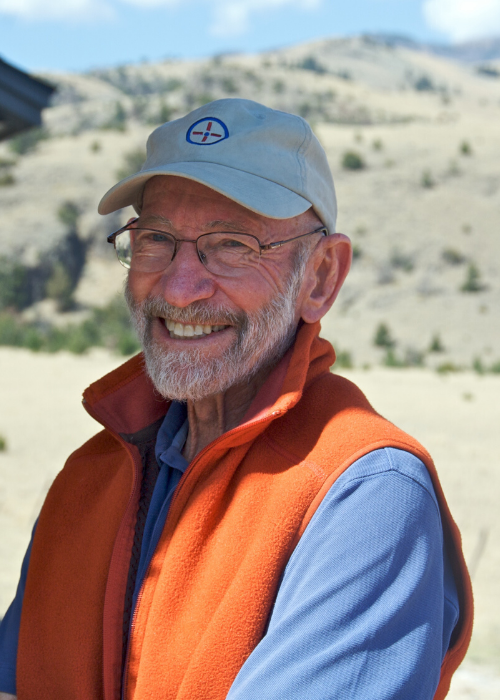News - 16 July 2020
A tribute to Michael Soulé, conservationist 1936—2020

Michael, a professor emeritus of environmental studies at University of California Santa Cruz, was widely regarded as the “father of conservation biology”. In 1986, he co-founded and was first president of the Society for Conservation Biology and in 1991 co-founded the Wildlands Network, two organisations that helped develop his vision of bringing social sciences and biology together for the conservation of nature.
The Wildlands Network recognised the tide of species extinctions across North America was compounded by a lack of habitat connectivity, and the organisation was founded with a focus on scientific and strategic support for networks of people working to ensure protected areas connected by healthy habitats on a continental scale, so that life in all its diversity could thrive.
Recognising the potential for such an approach in Australia, the Wilderness Society first invited Michael to travel here in the early 2000s, where he played a pivotal role in bringing together a group of leading Australian ecologists to consider connectivity requirements across the continent. The group, which became known as the “WildCountry Science Council”, promoted understanding of large scale and long-term ecological processes such as bird and animal migration, the movement of water across the landscape, and the critical need to consider these in protected area design and conservation management.
Michael’s groundbreaking work with the “Science Council” revolutionised conservation thinking in Australia and inspired a generation of scientists, planners, land managers, campaigners and community conservationists.
Michael’s bold vision for conservation across large landscapes, his work with the “Science Council” and the Wilderness Society’s WildCountry program helped initiate or inspire a number of projects that were embraced by networks of organisations, landholders and local people, as well as Traditional Custodians, that had or developed a life and momentum of their own including:
- GondwanaLink in Western Australia
- WildEyre in South Australia
- Habitat 141 in Victoria, New South Wales and South Australia
- The Great Eastern Ranges Initiative—crossing the eastern seaboard states.
Michael was particularly interested in the role of the Dingo as a highly interactive species within Australian ecosystems. With a background in predator research internationally, Michael worked with local experts and helped shift Australians' perception and relationship to the Dingo. After witnessing the reintroduction of wolves to Yellowstone National Park in the US, Michael was acutely interested in the Dingo’s role as a top order predator. Ongoing scientific research is now confirming Michael’s suspicion of the critical place of Dingos in the functioning of Australia’s ecosystems, and a need for us to re-evaluate two centuries of persecution towards an animal that for thousands of years has played an important ecological role as well as being highly significant to Traditional Custodians.
In reflecting on Michael and his legacy, it is impossible to forget his presence and gravitas, his power to inspire, embolden and bring focus to conversation and thinking. Through many meetings over the years - with the “Science Council”, Wilderness Society and other organisations, Michael constantly encouraged the group to think about ‘what nature needs’. With those simple words, Michael would anchor and focus discussion on understanding both nature and the action required from people.
The Wilderness Society—and indeed all Australians—owe Michael a great debt for the inspiration, forethought and deep consideration of both nature and people that he brought to conservation in Australia. Michael’s work lives on in the people, communities and projects he helped inspire, and takes us one step closer to his vision of a society recognising the precious and manifold values of the natural world, and respecting ‘what nature needs’.
Vale Michael.